20 years after Nigeria’s Volkswagen plant had gone moribund, the joy of new owners knew no bound, when last week Tuesday, blue-ribbon was cut to declare the massive German-built plant officially opened. But what goes on inside the plant will shock critics of the nation’s auto policy, Motoring World’s FEMI OWOEYE reports…
Guarding two gates leading into the premises are two uniformed men backing each of the gates. Though unarmed, the men’s professional conducts are more military than mere security guards. Cleared by them, I entered the premises. From the number of personnel at the reception, one was in no doubt that life is back in what used to be a moribund complex.
Further inside, I sighted something unusual, unexpected, several military troop career vehicles lined up along the right-hand side of the road.
“What? Is this place now being shared with military base or something?” I soliloquized. I later found an answer within the high walls of the main Volkswagen auto assembly complex.
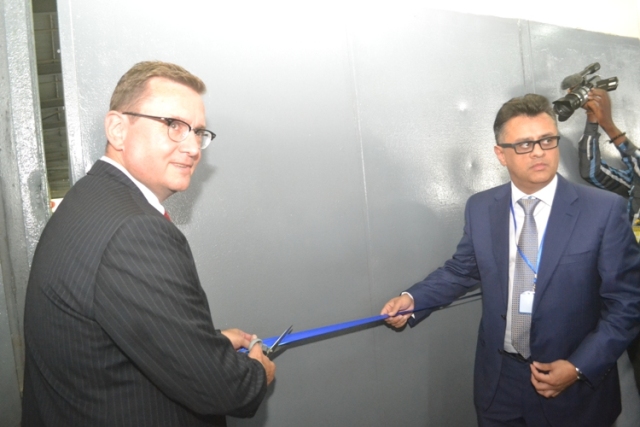
It was last week Tuesday, a day set aside to launch a revival of Nigeria’s Volkswagen plant shut down the mid-90s. Event commenced. Speeches made. Blue ribbon was cut. And the tall-thick-and-wide metal gate was opened to usher in guests, including journalists. And there we were! About two decades after the nation’s unpatriotic economic policy forced Nigeria’s Volkswagen plant to shut down and send its workers into the unemployment market, Volkswagen models were, once again, seen standing on their very own German-installed assembly line, ready to launch back into the nation’s auto market. Guests nostalgically recognized Jetta and Passat, two of the most familiar and popular models in the good old days. There were also VW CC and VW Amarok.
Although the models are being assembled from imported Semi-Knocked-Down (SKD) parts, interestingly they are being knitted together in a plant set up by their parent company, the Germans, who, we gathered, had been working round the clock to train Nigerian technicians, who are now operating the assembly lines and to update and retool the plant to cope with modern auto technological advancement.
Assembly Sections
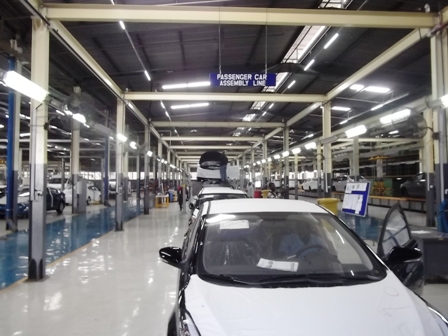
To assemble passenger cars, SKD bodies and parts are moved from unloading to the assembly line, where the engine is mounted, followed by electrical installation and wheels fitting. Afterward, it goes through the final check section. Also, there are break Tester, Wheel Alignment, Audit Bay, and Rework Sections. But on the whole, while commercial vehicles go through two stages, passenger cars go through four assembling stages.
However, touring through other sections of the Volkswagen complex, I made more discoveries: Assembly lines for Nissan and Hyundai are also located within the Volkswagen Village. Further inside still, there more findings.
Answer to Puzzle about Military Vehicles
 Lagos Volkswagen facility also hosts an assembly line for military troop career, being built from Completely Knocked Down parts. Aside from the engine and gearbox, all other parts are knitted together, including the chassis. So military trucks, which I earlier found lined up within the premises were products of the assembly plant. There is one more discovery.
Lagos Volkswagen facility also hosts an assembly line for military troop career, being built from Completely Knocked Down parts. Aside from the engine and gearbox, all other parts are knitted together, including the chassis. So military trucks, which I earlier found lined up within the premises were products of the assembly plant. There is one more discovery.
How Ashok Leyland Buses Are Assembled
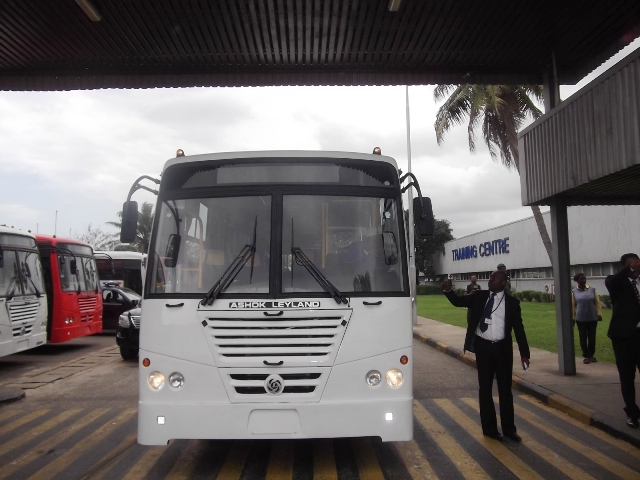
It would be recalled that after acquiring and resuscitating the Volkswagen plant in Lagos, Stallion Group commenced assembly of buses from the facility. Many of such buses, which are today, a common sight on Lagos BRT Lanes, were supplied to both Federal and State governments for mass Transit use. However, what might be unknown to many is the fact that those buses have some of their parts sourced locally and more:
The bus is assembled from Completely Knocked Down Parts. Over 20 per-cent of the bus’ parts are sourced locally. Most importantly, the body is Nigerian-made, built right there, with locally sourced aluminum and metal, cut to shapes, welded together, machine-stretched and strengthened for balancing and stability, treated against rust and pushed into enclosed baking and painting bay.

Albeit other brands have their assembly lines situated within the Volkswagen facility, they are there on the basis of being represented in Nigeria by Stallion Group, the new owner of the facility. But last week Tuesday’s celebration was all about the Volkswagen brand, the rejuvenation of its plant, and its official return to Nigeria.
Reactions from Volkswagen, Stallion
In his address before the plant was officially opened to visitors, Ratz Wolfgang, leader of the Volkswagen Group delegation from Germany affirmed that Volkswagen had again returned to Nigeria to continue its long history that began in the 1970s.
“Today marks the revival of the assembly of Volkswagen vehicles in Nigeria. “Volkswagen,” he said, adding,” We are certain that further growth is possible, which is why Volkswagen is constantly searching for new opportunities to increase global market and sales potential and we appreciate the fact that we are able to strengthen our business relationship with our professional partner Stallion…”
Also speaking at the occasion, VON Automobile Limited’s Managing Director, Mr. Tokunbo Aromolaran, said the facility launched last week was the first phase of what would eventually become a full-fledge auto assembly plant.
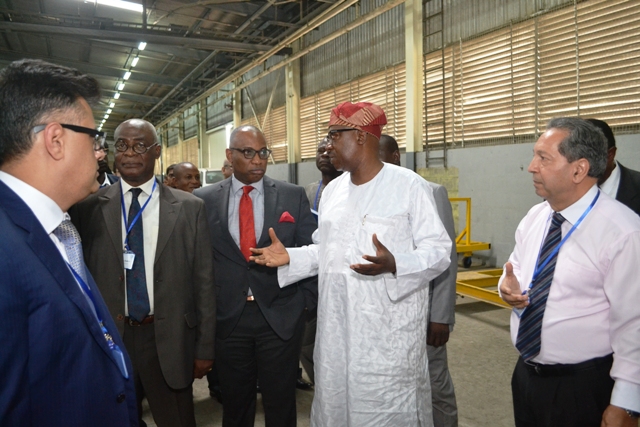
“We are here today to re-launch what you might call the second coming,” he explained. “This time around, we are coming in partnership with Stallion Group, and we want to assure you that it is a partnership that will endure and favour our country, Nigeria. By launching this facility today, I am happy to say that this compound is certainly coming back to life.
He said since Volkswagen was one of the two assembly plants that started assembling passenger cars in the 1970s, it would be unimaginable not to have Volkswagen brand among an array of vehicles that would become available in the market after full implementation of the nation’s auto policy
“The Stallion vision is to be the foremost auto manufacturer in the African region, providing customers a full range of service that will make vehicle ownership and usage a very pleasant experience”, he concluded.


Speaking exclusively to Motoring World, Managing Director of VON Automobile Nigeria Limited, Mr. Tokunbo Aromolaran has this to say: “We actually started our assembly, even before the auto policy saw the light of the day. We had had the vision to integrate backward from just car retailing to auto assembly and manufacturing. So the policy just came at the right time to support what we were doing. We had a vision already to turn Nigeria into a cornerstone of auto manufacturing in Africa. That is our plan.”
Last statement of Haresh Vaswani, Vice Chairman of Stallion Group, during an informal discussion at the end of the event, speaks volumes: “You haven’t seen nothing”.
Last Words
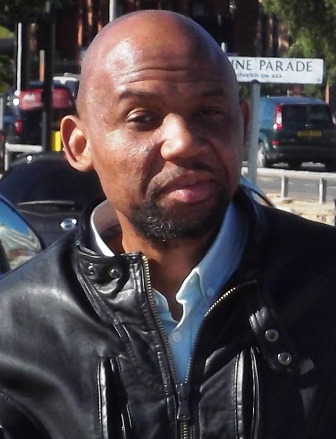
With Volkswagen’s second return to Nigeria, coupled with multiple assembly plants springing up in the country, competition in the nation’s automobile market is, no doubt, about to heat up.
As various locally-assembled brands would begin to wrestle for about 300,000 new and used car market, which is bound to increase with time, winner s will be brands with proof of quality, strong after-sales service, and most importantly, most affordable and competitively priced. Time will tell.
©Copyright MOTORING WORLD INTERNATIONAL.
All rights reserved. Materials, photographs, illustrations and other digital content on this website, may not be reproduced, published, broadcast, rewritten or redistributed in whole or in part without prior written permission from Motoring World International
Contact: editor@motoringworldng.com



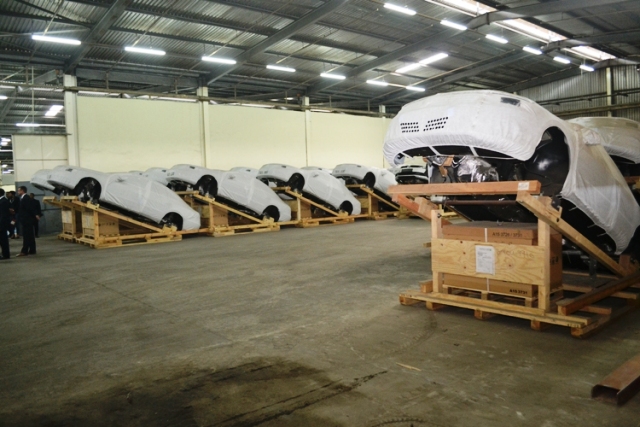


Nigeria could become the automotive hub in Africa but the quality of vehicle assemble has to meet international standard . For example the exterior finishing of some of the vehicle roll out since inception not smooth looking and poor painting jobs not to mention the poor interior as well . However practice they say makes perfect. Therefore challenge the Buhari administration to ensure local made vehicles becomes Government official use,and in doing so more jobs would be created ,grow the economy,and shrink forex exchange flight out of the country,and adding value to Nigeria currency.the auto manufacturer in the country should stick to her promise of reducing prices of local made vehicles that would discourage people import foreign vehicle. But let us be mindful that quality and low price is the name of the game.